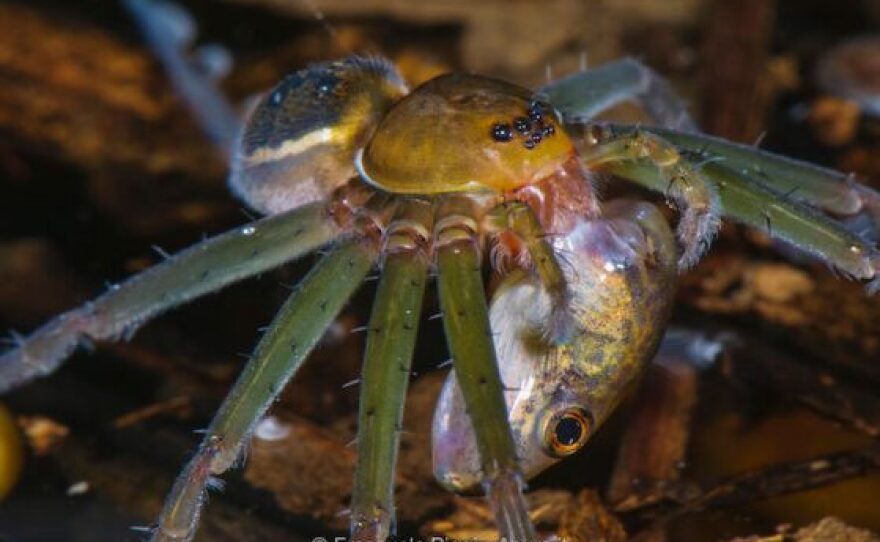This week on UnDisciplined, we're talking about some pretty scary things.
First, we're going to chat about the way global warming is impacting the world's fisheries and — spoiler alert — it isn't good. Then, we're going to talk about what happens when small vertebrates go to war with really big invertebrates and — another spoiler alert — it's the stuff of nightmares.
Joining us from the University of California at Santa Barbara is Chris Free, who was part of a team of researchers whose recent study in the journal Nature paints a pretty bleak picture if you like to eat seafood — or even if you don't, but you recognize the importance of our oceans for feeding the world.
Also with us from the University of Michigan is Rudi von May, who was part of a team of scientists who packed their recent paper in the journal Amphibian and Reptile Conservation full of photos of arthropods, like giant spiders, eating small frogs, lizards, snakes, and even some mammals.







